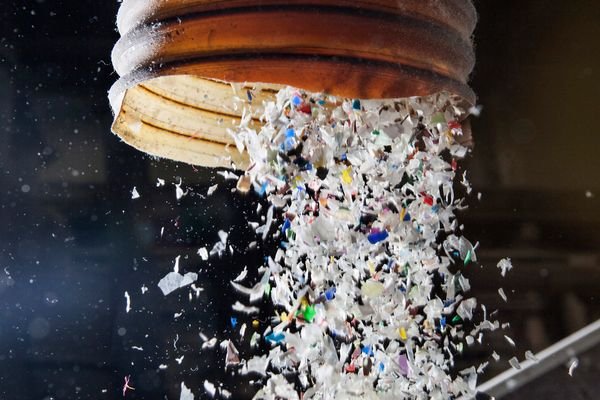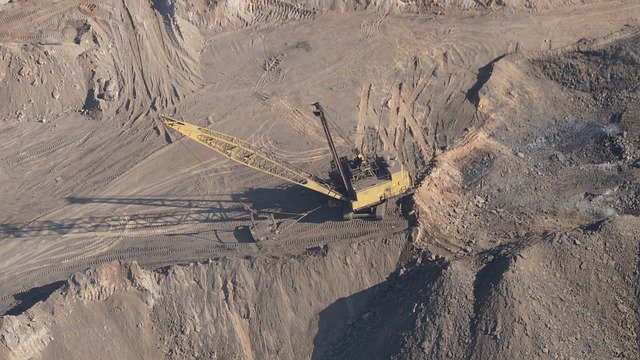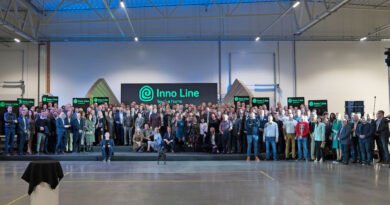Empowering Innovation: How SINReM is Creating a Cradle for Sustainable Startups
Lina Svaldenienė
The Russian-Ukrainian war and the trading sanctions that followed cut off many of the raw materials that Europe used to rely on. Moreover, we have recently heard President Ursula von der Leyen say that we need to find ways and options to substitute Chinese raw materials in industries that are essential for European further development. As EU goals are strongly intertwined with the circular economy, and sustainable mobility as well as green energy are prone to some of the rarest resources in the world, Europe needs 1) future leaders who would be able to manage resources in line with sustainability and democratic values and 2) their entrepreneurship to assure innovative solutions across the entire raw materials value chain.

The international Master of Science in Sustainable and Innovative Natural Resource Management (SINReM) is a significant step to establish a cradle for startups that would trigger innovation in the field.
Twenty-one students from across the world are starting their master’s studies this September at Ghent University, Belgium. After careful selection, which included an interview with the board of people, the best candidates from EU member states, India, Southeast Asia, and other parts of the world were granted generous scholarships for a two-year-long program that will span from Belgium to Germany and Sweden.
One student starts this exciting journey on behalf of Lithuania: Abhishek Singh, a 25-year-old permanent resident of Lithuania, who first came here to study medicine but then changed his mind to biotechnology. A young man with a mature personality, he has already witnessed the big differences between educational systems across the globe: he attended schools in South Africa, the United States, Great Britain, Lithuania, and Portugal. Permanent changes let him develop the ability to quickly adapt, catch up and employ the best from his previous experiences – that was a great bonus when applying to MSc SINReM.

“We can expect to see a clear path and push to make China less dependent on the world and the world more dependent on China. (..) This is especially true when it comes to critical raw materials like lithium or cobalt. For sectors like high-speed rail and renewable energy technology. Or for emerging tech that is central to future economic and national security – like quantum computing, robotics or artificial intelligence”.
President von der Leyen on EU-China relations to the Mercator Institute for China Studies and the European Policy Centre.
The program covers resource exploration, sustainable extraction processes and the development of more sustainable materials and recycling. Students will be taught to find new solutions that work towards the achievement of a circular economy. That makes so much sense that Abhishek came across SINReM when he was doing research on his own project – a non-profit environment company, which he established in India already two years ago. Company recycles over 800 tons of precious metals-containing waste each year. “Finally I will be among people who understand what I am talking about and who share the same values”, says a few-months-to-go newbie at the prestigious masters.
Three partner universities bring together a combination of expertise that makes up the entire raw materials value chain. Ghent University contributes through its leading expertise in the circular economy, environmental science and technology, recovery of resources from waste, and sustainability assessment. That half of the year is the most social science-like. The second half of the first year is going to be much more machinery-oriented, as one could expect of Germans. TU Bergakademie Freiberg offers its proficiency in sustainable and environmentally friendly extraction technologies. Finally, Uppsala University delivers extensive knowledge on the exploration of rare georesources. It also focuses on innovation management and entrepreneurship training.

At the end of the program, every SINReM student is expected to create a company that would employ the knowledge and skills they gained during two years of extensive work. The scholarship also commits its recipients to run the company in the European Union for at least two years ahead. As Abhishek already owns a company, he is self-confident about the entrepreneurial part.
“After two years I want to have a company with at least 4 employees and to use everything I have learned for a meaningful change. Until 32 I want to earn enough to stop worrying about my account as well as the future of the people I will employ including the people who will get services through my company”, shares his targets Abhishek.
Previous and ongoing career in the private sector proves to be a huge addition to Abhishek’s confidence. He has already been working in a recycling company as a regional manager for Asia & Australia, and his last year at “Teltonika” not only shows his cravings for technology but also phenomenal ability to show his best at a short period of time. During one year in a sales position he managed to gain the trust of his team to negotiate the projects in various sectors including the automation, energy utilities and military. And his region of business development is not cream and peaches: it is Central Europe and the Balkans, where businesses are skeptical and very price-aware.
“Teltonika” will wave him goodbye at the end of July, and Ghant, the city of students, will greet Abhishek in the beginning of August. He is so focused on his new challenge that the month of summer vacation will serve as a time to deep dive into calculus instead. In September, Abishek wants to be ready to shine in the group of future professionals that have a mission to bring more sustainability into the raw materials sector, just as himself.




